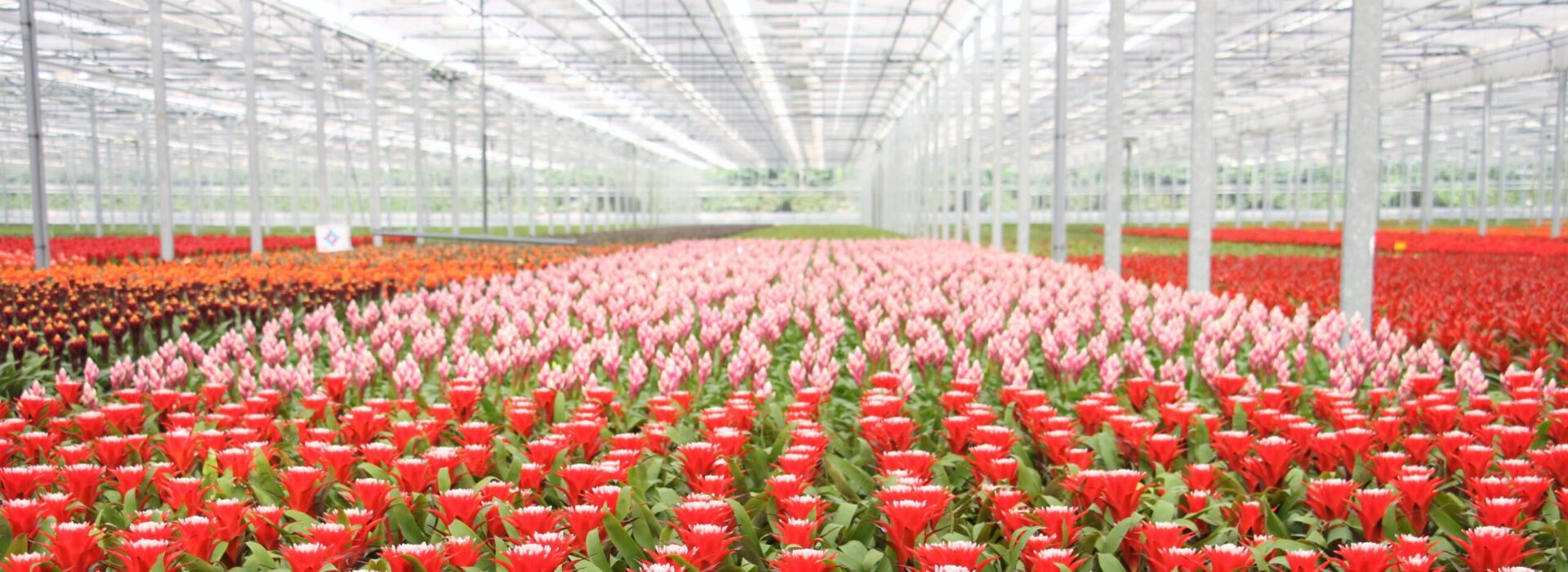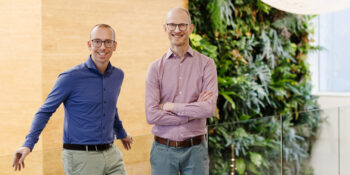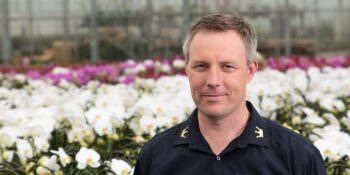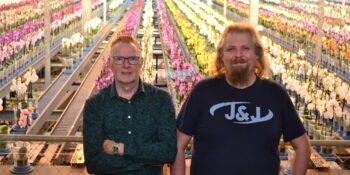Bunnik Bromelia has been in business for more than half a century. Today, 65 people grow and breed Guzmania, Vriesea, ornamental pineapple and Aechmea at two locations, each covering five hectares. With the help of its own sales organisation, Bromelia Specialist, every year millions of bromeliads in all shapes and colours find their way to retailers all over Europe.
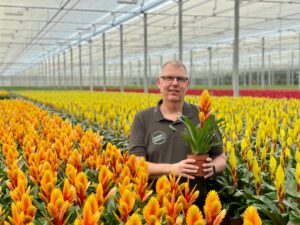
Gert van Butzelaar
Bunnik Bromelia is working hard on sustainability, says Gert van Butzelaar, Operational Manager of Cultivation & Production. “We separate all our waste and use a lot of cardboard and recycled materials in our packaging. In fact, our growing pots are made of 100 percent recycled material.”
Responsible use of water is also an important theme for the company. “We have a closed system in which we purify and reuse drain water, so no waste water is discharged. In addition, we store rainwater underground, so not a drop goes to waste.”
On the way to being peat-free
Another important sustainability theme at Bunnik Bromelia is peat-free cultivation. That’s not easy, as Van Butzelaar knows. “Peat has a buffering effect; it retains moisture and nutrients and gradually releases them again. That means that when you use peat substitutes, such as rice husks or coir, you have to provide more nutrients for the crop to ensure a healthy leaf and flower colour.” Nevertheless, they’re already well on their way: “We are already using almost half as much peat in our potting compost mixture. Last January we were at 80 percent, now we’re at only 40 percent.”
Natural enemies and a preventive approach
When it comes to sustainability, Bunnik Bromelia is also positioned well in terms of its use of crop protection agents. For example, fifteen different insects are in the greenhouse to tackle pests, and we even released geckos a few years ago. “They eat the spiders. You don’t see them much because they’re mostly working at night, but they’re there. Sometimes we even come across their babies.”
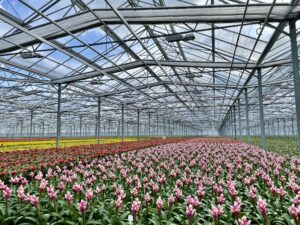 Biocides are also used, although 100 percent organic is not yet feasible. “We take a preventive approach in order to minimise the need to remedy problems using chemicals. We monitor plants weekly to detect pests as early as possible. We remove diseased plants, work cleanly and hygienically and use sticky traps and attractants.”
Biocides are also used, although 100 percent organic is not yet feasible. “We take a preventive approach in order to minimise the need to remedy problems using chemicals. We monitor plants weekly to detect pests as early as possible. We remove diseased plants, work cleanly and hygienically and use sticky traps and attractants.”
The idea is to make the plants as resilient as possible, for example by adding Trichoderma to the potting compost, which are “good” fungi that destroy the “bad” fungi, such as Pythium. “It’s hard to make a good strong plant sick, after all.”
MPS as a valuable partner
As mentioned, sustainability in the nursery is very important to customers in the retail sector. People can easily see Bunnik Bromelia’s accomplishments in this area from all the MPS certifications it has (MPS-A, MPS-GAP, MPS-SQ). “I really like the collaboration with MPS,” says Van Butzelaar. “I can easily get in touch with Service & Support if I need to, and the record-keeping environment is very user-friendly.”
Van Butzelaar is also pleased with the new data visualisation: graphs that show usage at a glance. “This way we can see how we are doing compared to the norm. That’s good for our company, but also for our customers. We like to be open about things and have a conversation with customers when there are problems. MPS is a good partner for us in this. Working with them brings everything together.”
